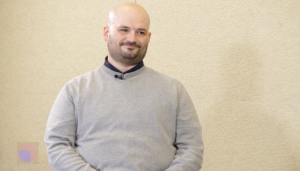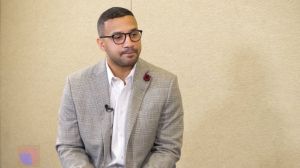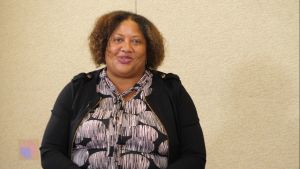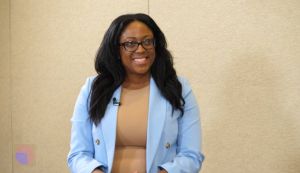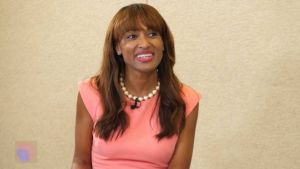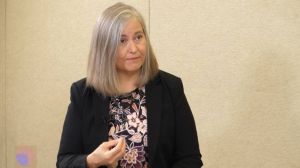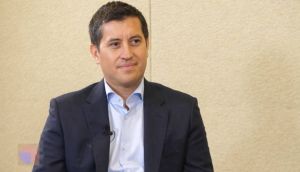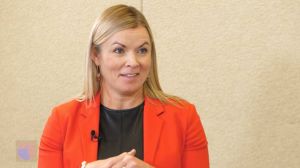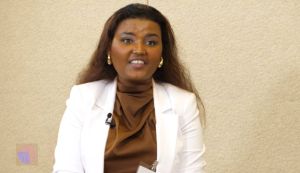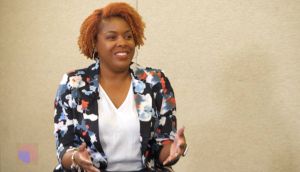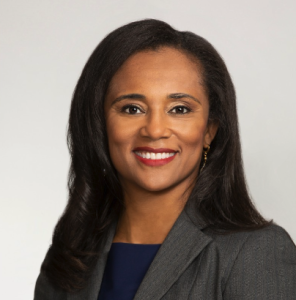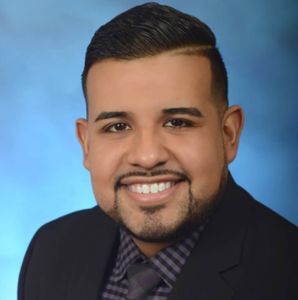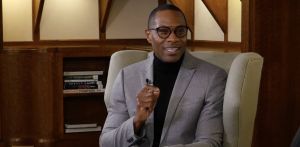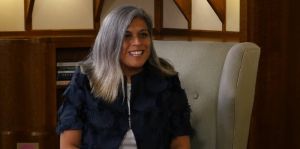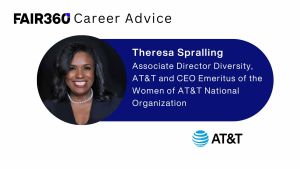Nicole Felix is an Assistant Director in the Americas Inclusiveness Center of Excellence at EY where she is responsible for maintaining an environment that respects and builds on the assets and talents of EY professionals. She was previously the Lead Diversity and MBA Recruiter for the West Region and has been with EY for 12 years. Prior to joining EY, Nicole was a Corporate Relations Manager with INROADS, Inc. and a Senior Financial Analyst in the financial services and healthcare industries.
Nicole is a California native and received her BS in Business Administration from California State University, Hayward in 1997. She is a lifetime member of the National Association of Black Accountants, Inc., NABA, (1994) and a lifetime member of Delta Sigma Theta, Sorority, Inc., (1995).
DI: You were a senior financial analyst infinancial services and healthcare early in your career. You then worked in corporate relations for INROADS, then moved to diversity and recruitment at EY for the western region. You’re nowan Assistant Director in the Americas Inclusiveness Center of Excellence. There’s a clear pattern here what does diversity mean to you
Felix: As a first-generation college student, I had decided to major in accounting, following in my cousin’s footsteps, who graduated with an accounting degree and successfully moved out of state to start her career. At that time, I was unaware of the lack of representation of Blacks in accounting and that my future profession would focus on bringing awareness to the industry, helping young professionals start their careers and developing future leaders of the organization.
I joined predominantly Black organizations during my college years as the affiliation with them made me feel “safe” and I surrounded myself with people who “looked” like me. Once I started to intern and network with professionals, I quickly learned that I needed to diversify my relationships and learn from others to understand different viewpoints.
Diversity for me is about awareness, exposure and perspectives. It goes beyond a person’s ethnic background or what you can see and helps you to understand what is within. Diversity values, respects and includes. Diversity is about strength through differences and together our differences make us better.
DI: You co-founded LIFE Courses, Inc. in 2011,a financial literacy and entrepreneur program for middle school students and their parents. Tell usmore about this and why you personally got involved.
While a junior in college, I interviewed for an INROADS internship with a Financial Services institution. I was the only Black intern in my class. That summer, I was assigned a mentor and learned about investment strategies and passive income. These were familiar lessons to most of my peers, but these were new concepts to me. When I returned to college later that year, my friend and I compared our internship experience. From that discussion, we both realized that we had an obligation to share our knowledge with our community and started the Youth Education Conference (YEC) for middle-school students and their parents as our college legacy.
We leveraged our involvement with the National Association of Black Accountants, Inc., (NABA); Delta Sigma Theta Sorority, Inc.; and Phi Beta Sigma Fraternity, Inc., to create a conference where students would learn financial education skills and their parents would learn college preparation and financing essentials. Once we graduated, the program continued and we began to move up the corporate ladder in our respective professions. Several years later, I connected with a former college mentor and my protg to volunteer for the YEC and realized it was time to enhance its offerings.
LIFE Courses Inc., which stands for LEARN, INSPIRE, FOCUS and ELEVATE, was created as a result with a purpose to transform underserved families by exposing them to financial education, entrepreneurship training and the globe to rise above their current environment and change their narrative. EY is a sponsor of LIFE Courses, Inc., and members of its professional networks and counseling families volunteer through LIFE’s four pillars to help students and their parents develop personal, professional and life skills.
DI: What advice would you give to millennials on how to become high potentials
I was the first in my family to have a career vs a job. Navigating the corporate environment would have been challenging if it was not for the support of my mentors whom I gained through my participation in programs such as NABA and INROADS. As my professional exposure was limited, my mentors taught me how to craft my rsum to speak to my abilities and not my responsibilities; how to share my story and the assets I possessed versus the liabilities I focused on; they gave me tips on enhancing my executive presence by focusing on areas of expertise, communication skills and appearance; they exposed me to various environments and situations so I would have confidence and a sense of belonging; and taught me to never forget where I came from and the importance of bringing others along as I progressed.
As I gained experience, demonstrated my technical abilities and became a highly regarded professional, some of my mentors began to be my coaches while others started to advocate for me and my work and became my sponsors. This earned relationship positioned me for opportunities only extended to high performers and opened new doors and possibilities for me.
I would encourage millennials to seek out mentors early in their career and build a two-way relationship where they are learning from their mentor while also teaching essentials associated with their generation (reverse mentoring). I would also encourage millennials to follow their passion, take time and give back in their communities and lift as they climb.
DI: What are some dos and don’ts on networking and building relationships with senior leaders
Early in my career, I heard the saying, “It is not about what you know, but who you know and what they know about you.” From this, I established that I wanted my personal brand to be known for my community work around the business profession.
I am known by my friends and peers as the Chief Connecting Officer because of my extended network. I have a gift for building and maintaining meaningful relationships and making valuable connections. I am able to do this because I meet “the people” versus “their titles” and am able to build genuine relationships.
I’m often asked for networking tips and offer the following dos and don’ts when networking with Senior Leadership:
- Do Smile/Don’t Frown A smile is a small gesture with big benefits. It is contagious and memorable and tells others that you are an approachable and caring person. “People don’t care how much you know until they know how much you care.” A smile says that you are open to a conversation and are friendly. A simple smile can go a long way in brightening someone’s day.
- Be present and not distracted When attending networking events, stay in the moment. Look for commonalities through conversations associated with books, music, movies, research, sports or work projects. Be engaged in the discussion at hand and try to refrain from pulling out your phone, being on social media or socializing with friends.
- Be memorable and stay relevant Find unique ways to stay connected to the leaders you meet. I often find ways to have quick conversations with leaders through social media platforms such as LinkedIn and Twitter. I share articles that are relevant to a conversation we shared or their area of interest. I also share projects I’m working on and how it relates to them. I get their perspective and follow up with them if I incorporate it into something. I put random calendar reminders to connect with leaders by sending them a simple email or text to let them know I’m thinking of them. Keeping a bimonthly or quarterly connection helps me to stay relevant and keep my relationship current.
- Stand out in the crowd In large events, it is sometimes hard to connect directly with leaders. I use an opportunity to ask a question and state my name while doing so to get leaders’ attention. If they are speaking from a platform where I do not have direct access to them, I use the power of social media to blog or tweet about their topics and the impact it has on me to start a one-on-one conversation. I also use direct messaging to share my LinkedIn profile so they have an opportunity to get to know me more professionally.


